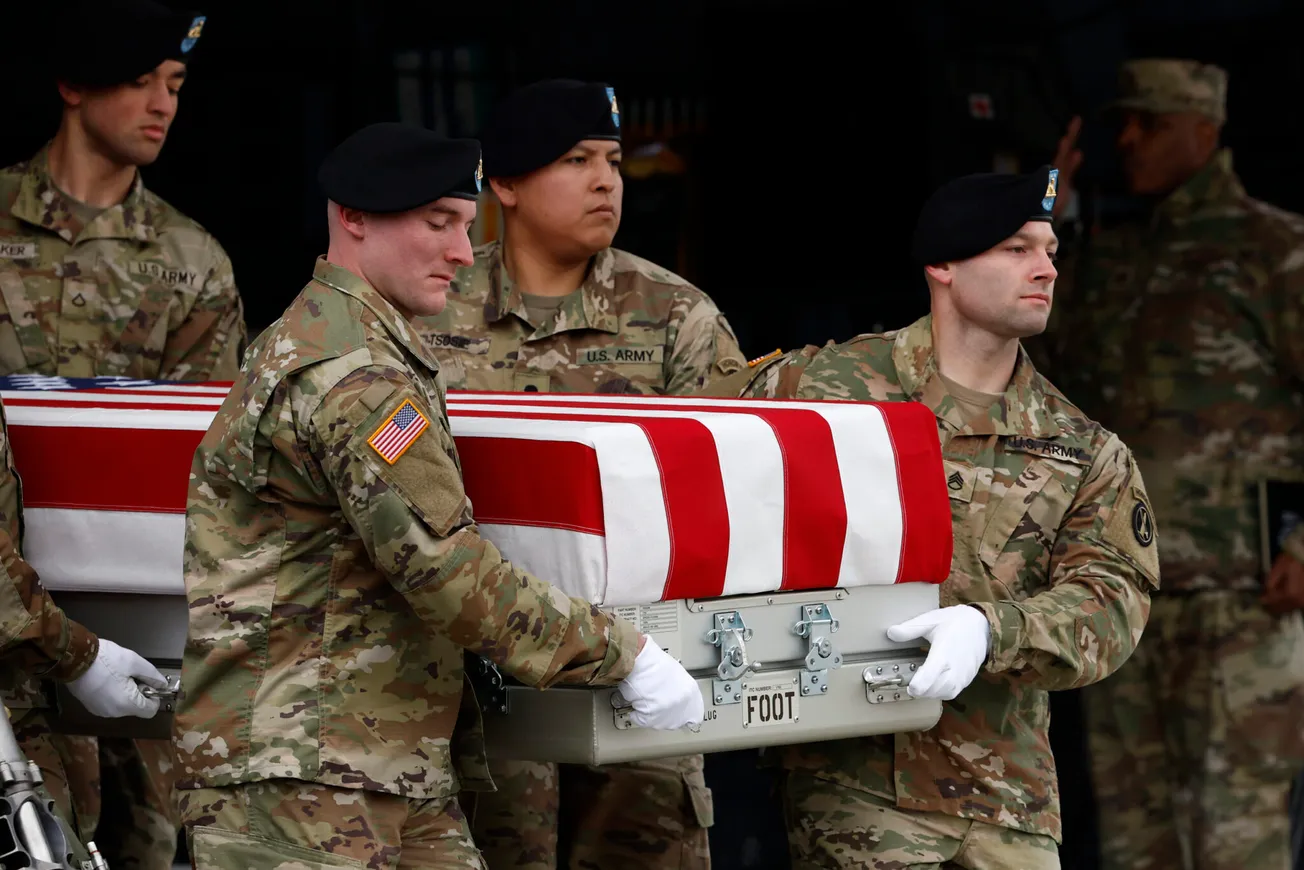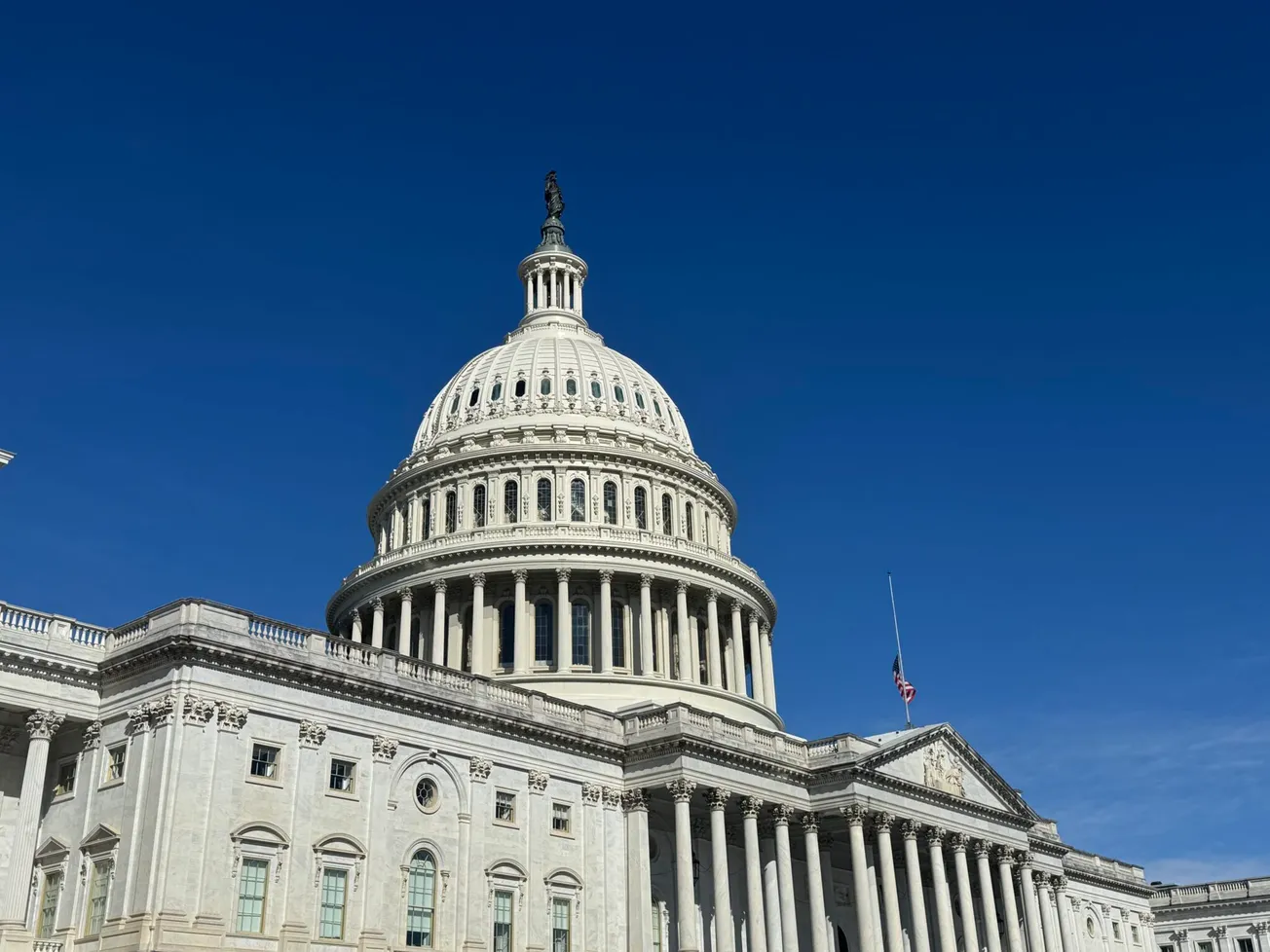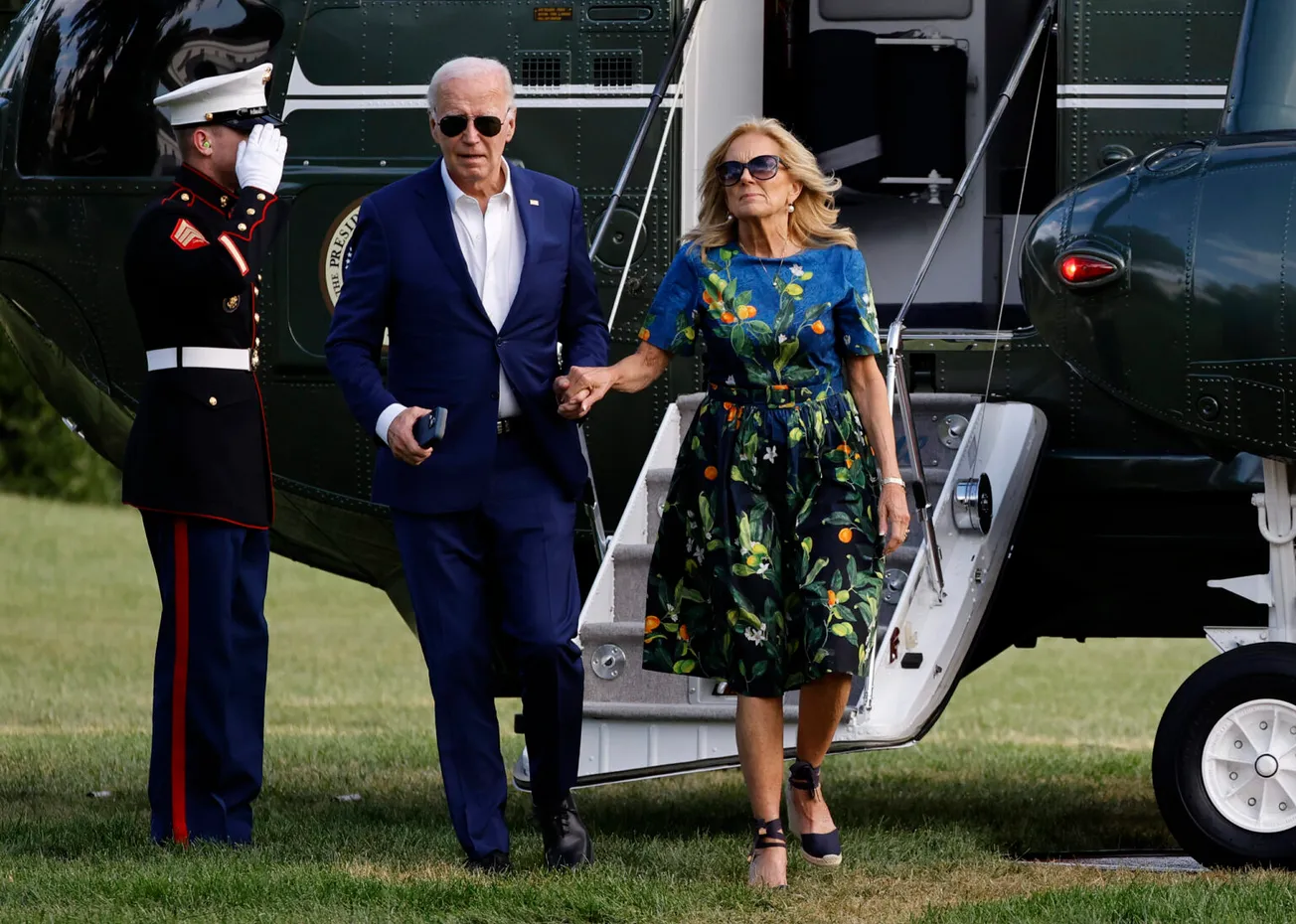By Jennifer Shutt, Minnesota Reformer
WASHINGTON — The U.S. military on Friday took a first round of retaliatory action following the deaths of three American troops by striking facilities in Iraq and Syria, according to a statement from President Joe Biden.
“The United States does not seek conflict in the Middle East or anywhere else in the world,” Biden said. “But let all those who might seek to do us harm know this: If you harm an American, we will respond.”
Biden said Friday marked the beginning of the U.S. response to the deaths in late January of Sgt. William Jerome Rivers, Spc. Kennedy Ladon Sanders and Spc. Breonna Alexsondria Moffett, all of whom were from bases in Georgia.
Dozens of U.S. troops were also injured in the drone attack at a base in Jordan that was carried out by groups supported by Iran’s Islamic Revolutionary Guards Corps, the Pentagon said.
The U.S. response, Biden said, “will continue at times and places of our choosing.”
Return of soldiers’ bodies
The announcement on Friday evening came just hours after Biden traveled to Dover Air Force base in Delaware to oversee the return of the three soldiers’ bodies to the United States and talk with their families.
The attack struck more than 85 targets at three facilities inside Iraq and four inside Syria, according to National Security Council Coordinator for Strategic Communications John Kirby and Lt. Gen. Douglas A. Sims, director for operations at the Joint Chiefs Staff.
The U.S. military used a B-1 bomber and more than 125 precision-guided missiles during the attack, which lasted about 30 minutes, Kirby said.
“This wasn’t just a message-sending routine tonight,” Kirby said on a call with reporters. “This was about degrading capability — taking away in a more robust way than we have in the past … capabilities by the (Islamic Revolutionary Guards Corps) and militant groups.”
Kirby said repeatedly on the call the United States doesn’t seek a broader conflict or a war, arguing that bombing militant groups’ locations would reduce their ability to strike.
“If you’re taking away capability of an adversary who’s trying to kill your troops and act against your interest in the region… then you are, by default, working to de-escalate the tensions,” Kirby said.
Sims said the timing of the attack centered on the weather.
“This was designed around the weather; when we had our best opportunity as it related to the weather,” Sims said. “Good weather presented itself today and as a result, this took place.”
Sims later clarified that the U.S. military’s “munitions are very precise and don’t take a lack of cloud cover” in order to be used.
“In an interest of ensuring that we’re hitting all the right targets and that we’re avoiding unnecessary casualties, it’s good for us to have clear weather to allow us to see those targets as we develop them,” Sims said.
The strikes were made, he said, “with an idea that there would likely be casualties associated with people inside those facilities.”
Kirby said the “targets were carefully selected to avoid civilian casualties and based on clear, irrefutable evidence that they will connect it to attacks on U.S. personnel in the region.”
‘All necessary actions’
Defense Secretary Lloyd J. Austin reinforced the president’s message that Friday’s strikes were only the start of America’s response to the attacks and attempted attacks on troops.
“The President has directed additional actions to hold the (Islamic Revolutionary Guards Corps) and affiliated militias accountable for their attacks on U.S. and Coalition Forces,” Austin said in a statement. “These will unfold at times and places of our choosing.”
“We do not seek conflict in the Middle East or anywhere else, but the President and I will not tolerate attacks on American forces,” Austin added. “We will take all necessary actions to defend the United States, our forces, and our interests.”
House speaker slams Biden
U.S. House Speaker Mike Johnson, a Louisiana Republican, criticized Biden’s handling of the U.S. response, which he said should have been “clear and forceful.”
“Unfortunately, the administration waited for a week and telegraphed to the world, including to Iran, the nature of our response,” Johnson said. “The public handwringing and excessive signaling undercuts our ability to put a decisive end to the barrage of attacks endured over the past few months.”
Johnson called on Biden to “stand firmly against those who would harm Americans, propagate terror, or threaten our allies.”
“Now is the time for President Biden to wake up to the reality that his policy of placating Iran has failed,” Johnson added. “To promote peace, America must project strength.”
U.S. Senate Armed Services Committee Chairman Jack Reed, a Rhode Island Democrat, said in a statement the response was “strong” and “proportional.”
“In fact, the 85 targets struck tonight mark a greater number than the prior administration,” Reed said. “Iran’s proxy forces in Syria and Iraq have been dealt a significant blow, and Iranian-linked militias around the Middle East should understand that they, too, will be held accountable.”
Minnesota Reformer is part of States Newsroom, a network of news bureaus supported by grants and a coalition of donors as a 501c(3) public charity. Minnesota Reformer maintains editorial independence. Contact Editor Patrick Coolican for questions: info@minnesotareformer.com. Follow Minnesota Reformer on Facebook and Twitter.






